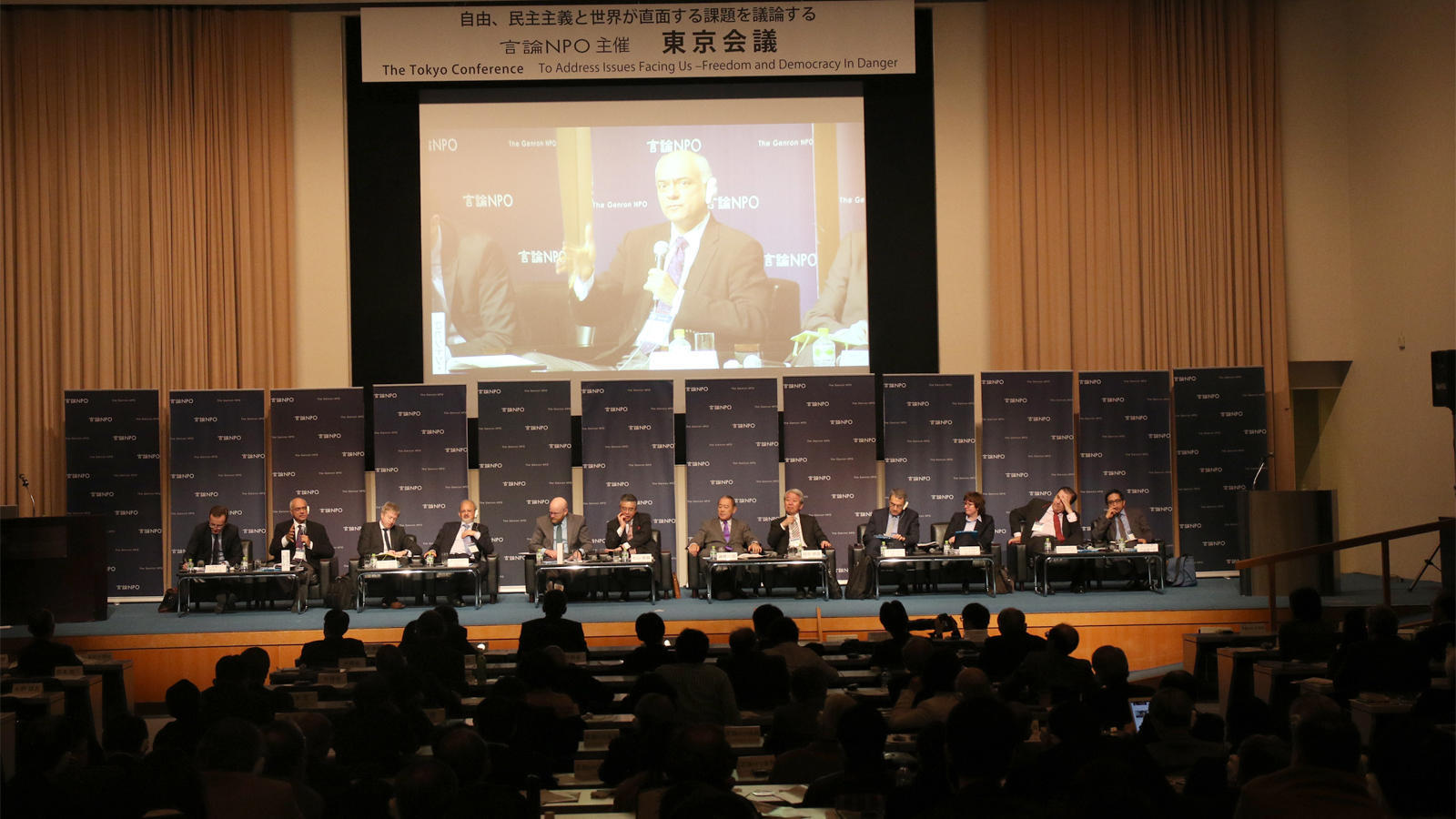Amid major changes in the geopolitical landscape and the economic balance of power on a global scale, we are witnessing the destabilization of the international order and the deterioration of diverse global issues, including risks to the world economy. Excessive globalization is triggering numerous economic and social issues, bringing about tension in relations between globalization and nation-states, and threatening the individual freedoms that are the very basis of liberal democracies.
In advanced countries, populist moves are spreading and political leaders overtly call for protectionist and exclusionist policies. In such circumstances, how should the G-7 member countries, which have been sharing the common values of democracy, liberty and equality, address these challenges? And what should developing countries do?
The aim of the Tokyo Conference is to have the representatives of the leading think tanks in 10 major countries conduct dialogue on diverse issues facing the world today in an open forum in Tokyo, and to forward what will be agreed or what will be discussed at the forum to the government of Canada, the chair of this year's G-7 Summit, and the government of Japan as a message to the G-7 leaders.
At the same time, the contents of the discussions at the forum will be broadly delivered to civil society in Japan so as to generate debates among the public leading to the solution of problems, at home and abroad. Furthermore, we aim to create a multi-layered venue for public debate in Japan by bringing together diverse discussions on how to address global issues. With an international forum of its kind being organized in Tokyo, it is expected that Japan's opinions will be heard globally and that Japan's proactive contribution to the solution of issues facing the world will be shown more tangibly to international society.
Discuss freedom, democracy and the future of the world with ten countries The event outline of the Tokyo Conference 2019
Theme: The U.S.‐China Confrontation and the Future of the International Order
Dates: March 3 (Sun.) 1:30pm~6:00pm (Door open: 1:00pm)
Venue: Ascot Hall II, B2F, Hotel Okura Tokyo
Programs:
1:30pm-1:45pm Opening Remark
1:45pm-3:50pm Session 1 |
"What would result from a worsening U.S.-China trade war:
The future of the free-trade regime and the global economic system"
4:10pm-5:50pm Session 2 |
"The Future of the liberal world order and multilateralism
-The raison d'etre of the G-7 / G-20 put to the test"
5:50pm-6:10pm Closing session
Participating panelists
◆Panelists from Think Tanks:
James M. Lindsay (Senior Vice President, Council on Foreign Relations, the United States of America)
Leslie Vinjamuri (Head of the US and the Americas Programme, and Dean of the Academy for Leadership in International Affairs, the Chatham House, The United Kingdom)
Alice Ekman (Head of China research, French Institute of International Relations, France)
Ettore Greco (Executive Vice President, Istituto Affari Internazionali, Italy)
Sunjoy Joshi (Chairman, Observer Research Foundation, India)
Volker Perthes (Director, German Institute for International Security Affairs, Germany)
Rohinton Medhora (President, Centre for International Governance Innovation, Canada)
Ong KengYong (Director, S.Rajaratnam School of International Studies, Singapore)
Carlos Ivan Simonsen Leal (President, Getulio Vargas Foundation, Brazil)
Yasushi Kudo (President, The Genron NPO, Japan)
◆Guest Panelists:
[The United States of America]
Clyde Prestowitz (Founder and President of the Economic Strategy Institute, Former Counselor to the Secretary of Commerce)
[China]
Wei Jianing (Research Fellow, Development Research Center of the State Council)
[Republic of Korea]
Geun Lee (Professor of International Relations, Seoul National University)
[Japanese government officials/Experts]
Yasutoshi Nishimura (Deputy Chief Cabinet Secretary)
Masatsugu Asakawa (Vice Minister of Finance for International Affairs, Ministry of Finance)
[Representative of G7 host country]
Laurent Pic (French Ambassador to Japan)


Post a comment